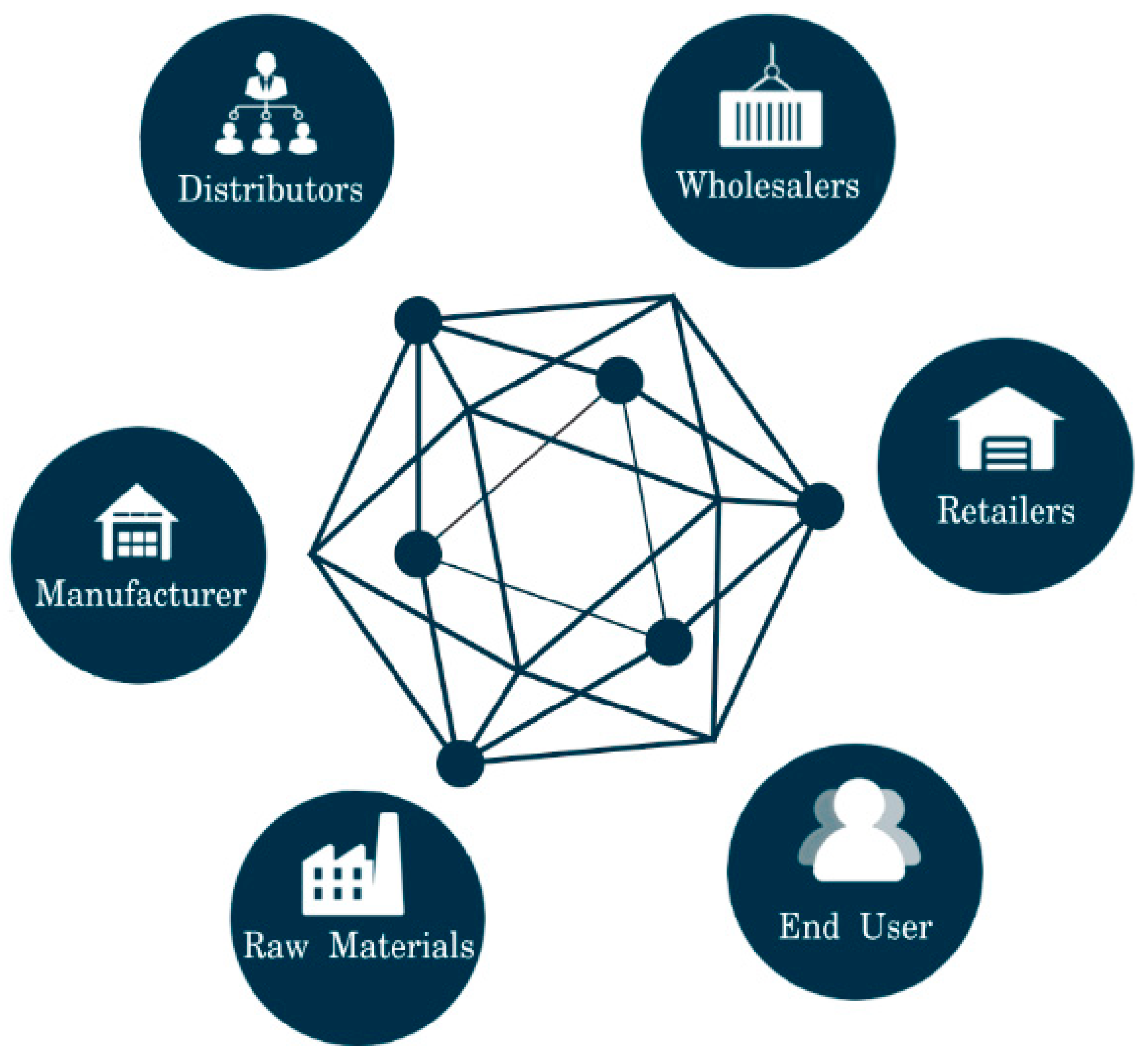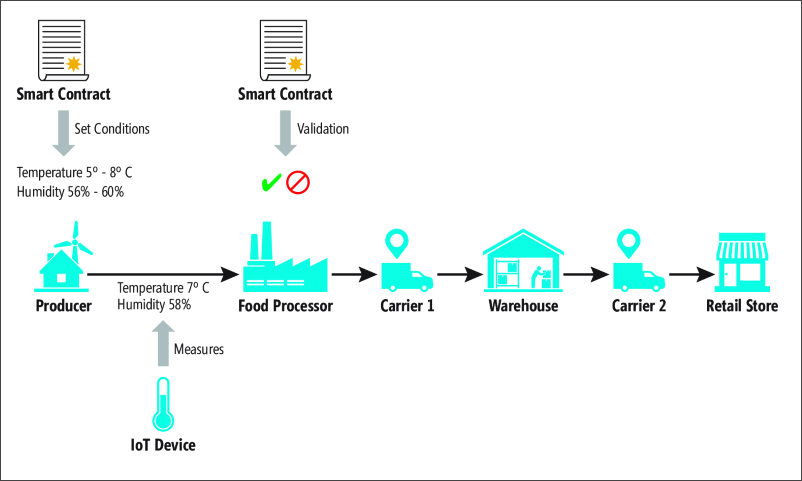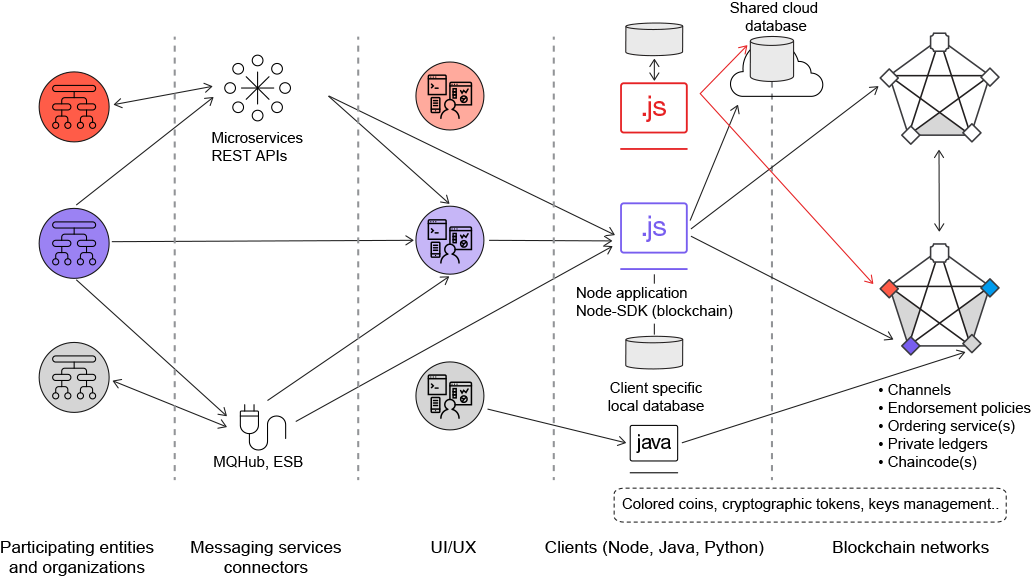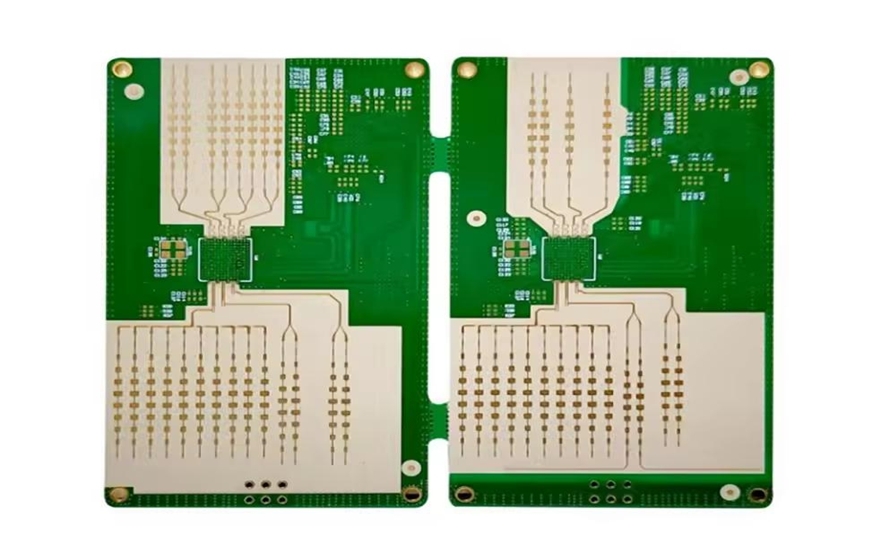In today’s fast-paced electronics industry, ensuring secure and transparent tracking of printed circuit boards (PCBs) through the supply chain is more critical than ever. Blockchain technology offers a groundbreaking solution for achieving this. By leveraging a decentralized, tamper-proof system, blockchain can enhance PCB logistics tracking, making it secure and transparent. For those searching for terms like "PCB with blockchain" or "blockchain PCB traceability," this blog will dive deep into how this technology transforms PCB supply chains, offering practical insights and benefits.
In this comprehensive guide, we’ll explore the role of blockchain in PCB logistics, its advantages for secure tracking, and how it ensures transparent PCB data. Whether you're an engineer, supply chain manager, or business owner in the electronics sector, this post will provide valuable information to help you understand and implement blockchain for better traceability.
What is Blockchain Technology and How Does It Apply to PCB Logistics?
Blockchain is a decentralized digital ledger that records transactions across multiple computers. This technology ensures that data cannot be altered retroactively without changing all subsequent blocks, making it highly secure. Originally developed for cryptocurrencies, blockchain has found applications in various industries, including supply chain management.
In the context of PCB logistics, blockchain creates an immutable record of every step in the supply chain—from raw material sourcing to manufacturing, assembly, and delivery. When integrated with PCB tracking, blockchain provides a clear, unchangeable history of a board’s journey. This capability is especially useful for industries requiring high reliability, such as aerospace, automotive, and medical devices, where traceability is non-negotiable.
For instance, using blockchain to track a PCB means that every stakeholder, from suppliers to end-users, can access real-time data about the board’s status. This transparency reduces the risk of counterfeiting, ensures compliance with regulations, and builds trust across the supply chain. Keywords like "PCB blockchain track" highlight the growing interest in this innovative approach.

Why PCB Logistics Needs Secure and Transparent Tracking
The PCB supply chain is complex, involving multiple parties, including raw material suppliers, manufacturers, assemblers, and distributors. Each stage introduces potential risks such as data tampering, loss of information, or delays. Traditional tracking systems often rely on centralized databases that can be vulnerable to hacking or human error.
Here are some key reasons why secure and transparent tracking with blockchain is essential for PCB logistics:
- Preventing Counterfeiting: Counterfeit PCBs can lead to product failures and safety hazards. Blockchain’s tamper-proof records ensure that every component’s origin is verifiable, reducing the risk of fake parts entering the supply chain.
- Regulatory Compliance: Industries like automotive and medical require strict adherence to standards. Blockchain helps maintain detailed records of compliance at every stage, making audits easier and more reliable.
- Reducing Errors: Manual data entry in traditional systems can lead to mistakes. Blockchain automates data recording through smart contracts, minimizing human error.
- Enhancing Trust: Transparent PCB data, accessible to all authorized parties, builds confidence among stakeholders by showing the exact status and history of each board.
By focusing on "blockchain secure" solutions, companies can address these challenges and improve overall supply chain efficiency.
How Blockchain Ensures Secure PCB Logistics Tracking
Blockchain’s core features—decentralization, immutability, and encryption—make it an ideal tool for secure PCB logistics tracking. Here’s how it works in practice:
1. Decentralized Data Storage
Unlike centralized systems where data is stored in a single location (and thus vulnerable to breaches), blockchain distributes data across a network of computers. This means that no single entity controls the information, and hacking the system becomes nearly impossible. For PCB logistics, this ensures that tracking data remains safe from unauthorized access or manipulation.
2. Immutable Records for Traceability
Once data is recorded on a blockchain, it cannot be altered or deleted. This immutability is crucial for "blockchain PCB traceability." For example, if a PCB moves from a manufacturing facility to an assembly plant, the transaction is logged with a timestamp and digital signature. Any attempt to alter this record would be immediately noticeable, ensuring the integrity of the supply chain data.
3. Encrypted Transactions
Blockchain uses advanced cryptographic techniques to secure data. Only authorized parties with the correct digital keys can access or update information. This encryption is vital for protecting sensitive details, such as design specifications or client information, during PCB logistics.

Benefits of Blockchain for Transparent PCB Data
Transparency is a cornerstone of modern supply chain management, and blockchain excels in providing it. When applied to PCB logistics, blockchain ensures that all stakeholders have access to accurate, real-time information. Let’s break down the specific benefits of "transparent PCB data" through blockchain:
1. Real-Time Visibility
With blockchain, every update to a PCB’s status—whether it’s a change in location, completion of a manufacturing step, or quality check—is instantly recorded and visible to authorized parties. This real-time visibility helps in quick decision-making and reduces delays. For instance, if a shipment is delayed, stakeholders can immediately identify the issue and take corrective action.
2. Improved Accountability
Since blockchain logs every transaction with a verifiable digital signature, it holds all parties accountable for their actions. If a supplier provides substandard materials, the record of that transaction is permanently stored, making it easier to trace back issues and enforce responsibility.
3. Enhanced Customer Trust
End customers, especially in industries like consumer electronics, increasingly demand transparency about product origins and manufacturing processes. By using blockchain to provide transparent PCB data, companies can share verifiable information with customers, boosting brand credibility.
According to recent industry reports, supply chain transparency can increase customer trust by up to 30%, leading to higher loyalty and repeat business. This statistic underscores the value of adopting technologies like blockchain for PCB tracking.
Practical Applications of Blockchain in PCB Logistics
Now that we’ve covered the theoretical benefits, let’s look at practical ways blockchain is applied in PCB logistics. These applications target long-tail keywords like "PCB with blockchain" and "PCB blockchain track."
1. Raw Material Sourcing
Blockchain can track the origin of raw materials used in PCB production, such as copper or fiberglass. By recording the source and quality certifications on the blockchain, manufacturers can ensure that only compliant materials are used, reducing the risk of defects.
2. Manufacturing Process Tracking
During PCB fabrication, blockchain logs every step, from etching to drilling to soldering. For high-frequency PCBs, where signal integrity is critical (e.g., maintaining impedance values of 50 ohms for optimal performance), blockchain records can confirm that each process meets the required specifications.
3. Shipping and Delivery
Blockchain integrates with IoT devices like RFID tags to track PCBs during transit. For example, if a shipment of PCBs is delayed due to customs clearance, the blockchain updates the status in real time, ensuring all parties are informed. This level of traceability is crucial for time-sensitive projects.
Challenges in Implementing Blockchain for PCB Logistics
While blockchain offers significant advantages, its adoption in PCB logistics is not without challenges. Understanding these hurdles can help companies prepare for a smoother transition.
1. High Initial Costs
Setting up a blockchain system requires investment in software, hardware, and training. For small to medium-sized enterprises, this cost can be a barrier. However, the long-term benefits of reduced fraud and improved efficiency often outweigh the initial expense.
2. Integration with Existing Systems
Many companies use legacy tracking systems that may not be compatible with blockchain technology. Integrating these systems requires careful planning and technical expertise to ensure a seamless transition.
3. Scalability Issues
Blockchain networks can face scalability challenges when handling large volumes of transactions. For global PCB supply chains with thousands of daily updates, choosing the right blockchain platform (e.g., private vs. public) is essential to maintain performance.
Steps to Adopt Blockchain for PCB Logistics Tracking
For companies looking to implement blockchain for secure and transparent PCB logistics, here are actionable steps to get started:
- Assess Your Needs: Identify specific pain points in your current supply chain, such as delays or counterfeiting risks, that blockchain can address.
- Choose a Platform: Select a blockchain platform that suits your scale and security requirements. Options include private blockchains for internal use or hybrid models for collaboration with partners.
- Partner with Experts: Work with blockchain technology providers who understand the electronics industry to customize solutions for PCB tracking.
- Pilot a Project: Start with a small-scale pilot, such as tracking a single batch of PCBs, to test the system and identify areas for improvement.
- Train Your Team: Ensure that staff are trained to use blockchain tools effectively, from data entry to accessing transparent PCB data.

Future of Blockchain in PCB Logistics
The future of blockchain in PCB logistics looks promising as the technology continues to evolve. Industry forecasts suggest that the blockchain supply chain market could grow at a compound annual growth rate (CAGR) of over 50% from 2025 to 2032, driven by the demand for transparency and efficiency. For PCB manufacturers, staying ahead of this trend can provide a competitive edge.
Emerging innovations, such as combining blockchain with artificial intelligence (AI) for predictive analytics, could further enhance logistics. For example, AI could analyze blockchain data to predict delays or quality issues, allowing proactive solutions. Additionally, as more companies adopt blockchain, interoperability between different systems will improve, making global PCB supply chains even more connected.
Conclusion
Blockchain technology is revolutionizing PCB logistics by providing secure, transparent, and efficient tracking solutions. With features like immutable records, decentralized storage, and real-time visibility, blockchain addresses critical challenges in the supply chain, from counterfeiting to compliance. For those exploring "blockchain secure" or "blockchain PCB traceability," the benefits are clear: enhanced trust, reduced errors, and improved accountability.
While adopting blockchain may involve initial costs and integration challenges, the long-term advantages make it a worthwhile investment for companies in the electronics industry. By following the steps outlined in this guide, businesses can leverage blockchain to transform their PCB logistics, ensuring that every board’s journey is tracked with precision and transparency.
Stay ahead in the ever-evolving world of electronics by embracing blockchain for secure and transparent PCB data. This technology is not just a trend—it’s a game-changer for the future of supply chain management.
 ALLPCB
ALLPCB







